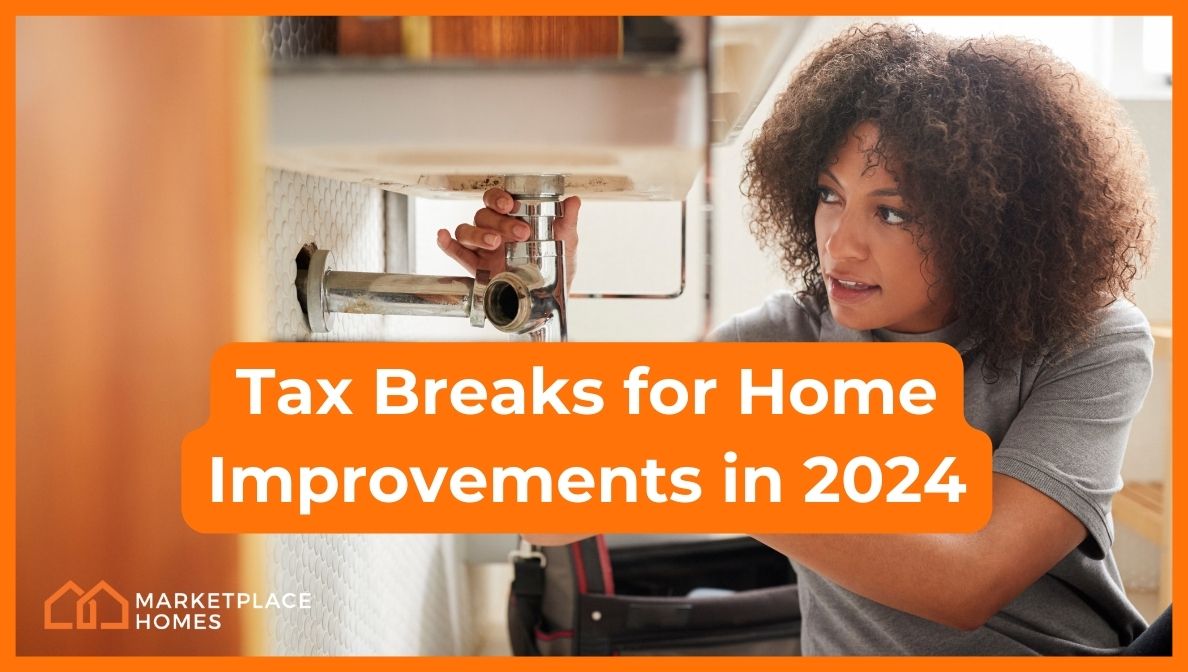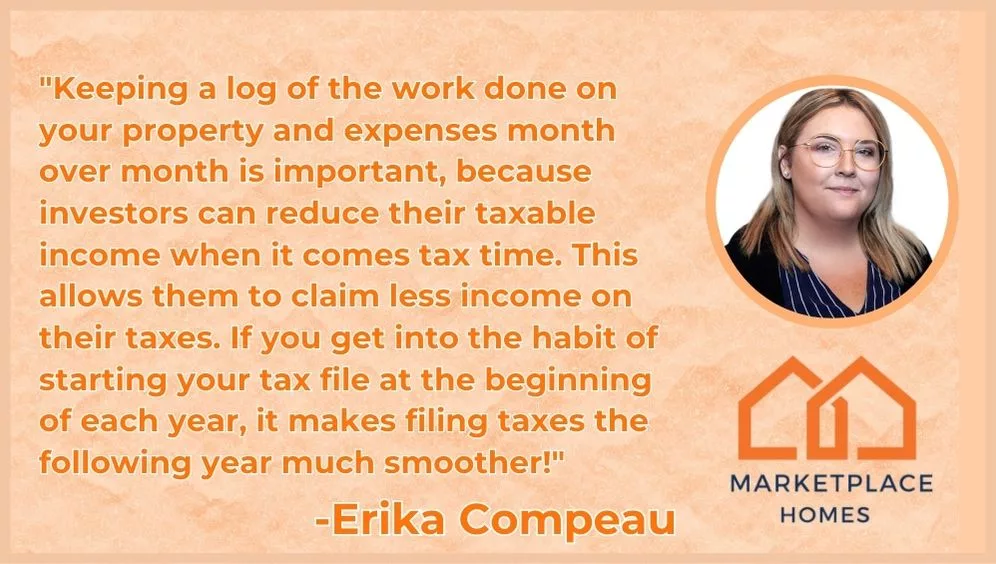New Tax Breaks For 2024 Home Upgrades
Homeownership has a lot of perks including building equity and snagging some of the best homeowner tax credits and deductions. In 2024, the federal government created even more tax deductions for homeowners through the Inflation Reduction Act, which adds some additional coverage for improvements that make homes energy efficient.
Through the nonrefundable Energy Efficient Home Improvement Credit, Residential Clean Energy Credit, and High-Efficiency Electric Home Rebate Program, taxpayers who make qualified improvements to their houses to improve energy efficiency can get substantial tax breaks. What are the details and how can you verify which improvements will get you these savings?
As we near the second half of the year, it feels like tax return paperwork collection time has snuck upon us. Being able to claim home improvement projects on taxes can improve the quality of your life while also raising the value of your home.
For the best tax refund potential, consult an experienced CPA who is familiar with federal and state tax laws. Got any other questions about how to save money or prepare finances like closing costs for a new construction home? Let’s chat.
Disclaimer: This blog is for informational purposes only but not a complete guide. Please consult a tax professional for the most accurate and up-to-date information regarding tax credits.
2024 Home Upgrade Tax Breaks
If you have been on the fence about getting a new HVAC or switching from gas to electric appliances, new federal tax credits can help knock hundreds to thousands of dollars off your home improvement bill. These new tax credits replace the Non-Business Energy Property Tax Credits.
Energy Efficient Home Improvement Tax Credit
Homeowners can get up to $3,200 a year through this program that started on January 1, 2023. It will run until December 31, 2032, so it can be helpful if you plan to remodel or install energy-saving upgrades in the next ten years. These home renovations must be made in your primary residence. It doesn’t apply to rentals or new construction homes. The total credits received will be based on a variety of factors, like yearly household income and program type. Examples of claim limits include:
- HVAC heat pump for heating and air conditioning: Up to 30% of costs, capping at $2,000.
- Heat pump water heater: Up to 30% of costs, capping at $2,000.
- Biomass Stoves and Boilers: Up to $2,000.
- Home Energy Audit: Up to $150.
- New Exterior Door: Up to $250 each or $500 for all exterior doors.
- New Exterior Windows and Skylights: Up to $600.
- New Insulation: Up to $1,200.
- Upgraded Electrical Panel: Up to $1,200.
Residential Clean Energy Credit
This tax break allows homeowners to claim up to 30% of the costs of new, qualified clean energy improvements that happen between the years 2022 through 2033. This credit also applies to primary residences. Qualified home repairs and upgrades include:
- Battery Storage Technology.
- Solar Panels.
- Solar Water Heaters.
- Small Wind Turbines.
- Geothermal Heat Pumps.
- Fuel Cells.
- New Roofs that meet energy efficiency standards like metal and asphalt with cooling granules.
Hot Tip: Confused about what roofs qualify? Check out Fixr’s blog, which contains more information about eligible roof types.
High-Efficiency Electric Home Rebate Program (HEEHRA)
According to the most recent information, The Department of Energy recently revised when HEEHRA rebates will be available. Now the rebates should be available in the second half of 2024 in select areas then be available in most areas at the beginning of 2025. The funding for this program exists but individual states have much to work out still.
Under the program’s guidelines, families that earn 80% or below their local median income can get the full rebate for energy-efficient upgrades to electric systems like heat pumps. Families that earn between 80% and 150% of their area’s median income can get half of the following maximum rebates:
- Heat Pump HVAC: $8,000.
- Qualifying Hot Water Heater: $1,750.
- Electric Stove/Cooktop/Range/Oven: $840.
- Qualifying Clothes Dryer: $840.
- Upgraded Breaker Box: $4,000.
- Upgraded Electrical Wiring: $2,500.
- Upgraded Insulation & Ventilation: $1,600.
If you have more questions about the specifics of tax credit limits, this list of frequently asked questions about the new tax credits. This HEEHRA Fact Sheet is also helpful in breaking down what to expect when the rebates do become available to the general public.
Can you Combine HEEHRA and IRS Tax Credits?
Yes, you can combine the rebates from HEERA with IRS tax credits. The tax credits through the IRS and the rebates are two different financial incentives that don’t interfere with each other. If you have plans to improve your home, check with your state to see if HEEHRA is available, and speak with a tax professional to be sure you can claim the financial perks before you commit to a project. If you pick the right project and replacement upgrade, you can end up getting the entire cost of it covered if you meet income qualifications!
The Importance of Keeping Records for Tax Time
Before you can claim these tax breaks, you must keep organized records of work done, and verify that the project aligns with the IRS’s conditions to qualify. Erika Compeau, an accounting expert who has years of experience keeping client records at Marketplace Homes, comments on the importance of record-keeping.
“Keeping a log of the work done on your property and expenses month over month is important because investors can reduce their taxable income when it comes tax time. This allows them to claim less income on their taxes. If you get into the habit of starting your tax file at the beginning of each year, it makes filing taxes the following year much smoother.”
Thank you, Erika!
What about Residents of Rental Properties?
While residents of rental properties can get some awesome renter tax breaks, most of the credits and rebates in this article are for homeowners. However, there are some exceptions that can still save renters money. For instance, HEEHRA can give renters discounts on portable appliances like induction cooktops and window unit heat pumps. Renters can also get some tax credits if their rent includes property taxes. For more details, speak with your tax pro!
Home Improvement Tax Credits
As we near the second half of the year, it feels like tax return paperwork collection time has snuck upon us. Being able to claim home improvement projects on taxes can improve the quality of your life while also raising the value of your home.
For the best tax refund potential, consult an experienced CPA who is familiar with federal and state tax laws. Got any other questions about how to save money or prepare finances like closing costs for a new construction home? Let’s chat.
Can you Combine HEEHRA and IRS Tax Credits?
Yes, you can combine the rebates from HEERA with IRS tax credits. The tax credits through the IRS and the rebates are two different financial incentives that don’t interfere with each other. If you have plans to improve your home, check with your state to see if HEEHRA is available, and speak with a tax professional to be sure you can claim the financial perks before you commit to a project. If you pick the right project and replacement upgrade, you can end up getting the entire cost of it covered if you meet income qualifications!
The Importance of Keeping Records for Tax Time
Before you can claim these tax breaks, you must keep organized records of work done, and verify that the project aligns with the IRS’s conditions to qualify. Erika Compeau, an accounting expert who has years of experience keeping client records at Marketplace Homes, comments on the importance of record-keeping.
“Keeping a log of the work done on your property and expenses month over month is important because investors can reduce their taxable income when it comes tax time. This allows them to claim less income on their taxes. If you get into the habit of starting your tax file at the beginning of each year, it makes filing taxes the following year much smoother.”
Thank you, Erika!
What about Residents of Rental Properties?
While residents of rental properties can get some awesome renter tax breaks, most of the credits and rebates in this article are for homeowners. However, there are some exceptions that can still save renters money. For instance, HEEHRA can give renters discounts on portable appliances like induction cooktops and window unit heat pumps. Renters can also get some tax credits if their rent includes property taxes. For more details, speak with your tax pro!
Home Improvement Tax Credits
As we near the second half of the year, it feels like tax return paperwork collection time has snuck upon us. Being able to claim home improvement projects on taxes can improve the quality of your life while also raising the value of your home.
For the best tax refund potential, consult an experienced CPA who is familiar with federal and state tax laws. Got any other questions about how to save money or prepare finances like closing costs for a new construction home? Let’s chat.
Alicia Persson is a Content Strategist SEO writer at Marketplace Homes, utilizing previous years of experience on real estate teams that specialized in investments and property management. Before she joined Marketplace Homes, she was also a freelance writer for 7 years, leading to a specialization in real estate and home living content for boutique digital marketing agencies. During her writing years, she learned the basics of SEO and gained experience writing for many different clients, making her versatile at creating diverse content.
She is a proud University of Virginia master’s graduate and enjoyed her undergraduate years at the University of Mary Washington. When Alicia is not writing, she plays keytar and sings in a local 90’s rock cover band, or she spends time with her amazing family.



